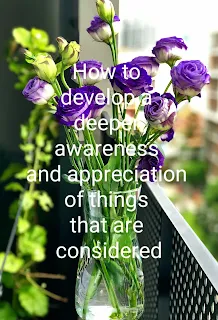Introduction: The Essence of Being Human
"Be the reason someone smiles. Be the reason someone feels loved and believes in the goodness in people." This poignant quote by Roy T. Bennett encapsulates the essence of humanism and human-centric values. Being human is the greatest feeling of all, as it transcends happiness and sadness, relying instead on our ability to perceive life through a lens of positivity and compassion.
The Power of Perspective
The way we choose to interpret life's circumstances profoundly influences our emotional state and interactions with others. Rather than allowing our aspirations to dictate our feelings and reactions, we should recognize that the power of positivity lies within us. For example, consider two individuals facing job losses:
Jay, after losing his job, focuses on the opportunity to explore his passions, rekindle old hobbies, and network with peers for new opportunities.
Tom, on the other hand, wallows in self-pity and blames fate for his misfortunes, leading to a downward spiral of negative emotions.
While both face the same challenge, Jay’s humanistic approach allows him to turn adversity into opportunity, demonstrating that our attitudes and situations matter immensely.
Understanding Humanism: A Modern Perspective
Scientific and Secular Values
Humanism, particularly in Western contexts, is gaining immense traction, focusing firmly on scientific and secular values—often categorized as scientific humanism and secular humanism. The belief that one's actions often serve as a reflection of their true character underlines the necessity for self-awareness and personal growth.
For instance, in educational settings, humanistic values pave the way for an enriching academic environment that promotes critical thinking and individual responsibility.
Education as a Vehicle for Humanistic Values
Education is pivotal in cultivating humanistic ideals. The goal of education should be the complete development of human personality, equipping individuals to address personal and social challenges. In this context, the humanistic approach emphasizes effectiveness, efficiency, and happiness.
Consider the example of a school that incorporates service-learning projects into its curriculum. Students actively engage in community service, which not only enriches their understanding of the social fabric but also fosters empathy and collaboration. This experience epitomizes the democratic philosophy of education, promoting fundamental values like liberty, justice, equality, and fraternity.
The Philosophy of Humanism in Action
Potential for Personal Growth
Humanistic philosophy posits that individuals possess the capacity to resolve their issues. Through a harmonious approach, they can achieve personal satisfaction and continuous development. Take the story of a woman, Lisa who faced emotional turmoil after a divorce. Instead of succumbing to despair, she engaged in self-help workshops which allowed her to explore her passions and reclaim her identity.
This journey not only highlights the potential for personal transformation but also exemplifies how humanistic values can instill confidence and resilience.
The Aesthetic Experience of Nature
A core aspect of humanism is the appreciation for beauty and the grandeur of nature. Embracing nature, whether through hiking, gardening, or simply enjoying a sunset, provides aesthetic experiences that deepen our connection to life and existence.
For example, an artist may find inspiration in the intricate patterns of a flower, channeling this admiration into their work, thereby infusing their creations with life and meaning.
The Global Impact of Humanism
Democracy and a High Standard of Living
Humanism does not merely emphasize individual fulfillment; it also lays a foundation for democratic values worldwide. By advocating for a high standard of living and fostering social equity, humanism contributes to the progress of societies. The implementation of scientific methods and logical reasoning within democratic frameworks reinforces the relevance of scientific humanism in educational philosophies.
For instance, countries like Finland, which emphasize a humanistic approach in their education system, consistently rank high in global education assessments, illustrating the practical benefits of these principles.
Indian Insights: Dr. Radhakrishnan's Vision
Dr. Sarvepalli Radhakrishnan, the second President of India, echoed important sentiments regarding humanism and education. He stated, “Each age has its faith, and we are committed to science.” This statement suggests that education should remain relevant and adaptive, focusing on values that resonate across generations.
His insights remind us that the pursuit of knowledge should extend beyond mere technicalities; it must align with deep-seated human values that prioritize holistic growth. The Dangers of Over-Identification with Knowledge
As society rushes toward technical advancements, we must remain vigilant about the potential loss of humanistic values. The quest for qualifications and expertise often overshadows virtues such as empathy and relationship-building. Knowledge locked within an individual’s mind is futile if it doesn't shape their personality and humanity.
For instance, in corporate environments, professionals often become focused solely on metrics and output, neglecting the importance of teamwork and a positive workplace culture. Organizations that emphasize humanistic values tend to have better employee satisfaction and retention rates.
-Embracing the Present: Living the Humanistic Ideal
Humanistic individuals strive to live fully in the present. They relish life, recognizing that the past is immutable, and the future remains uncertain. Their understanding of life is akin to the proverb, “Yesterday is history, tomorrow is a mystery
Through mindfulness practices, individuals can cultivate deeper awareness and appreciation for the present moment, allowing them to navigate emotional challenges with greater ease and clarity.
Conclusion: The Call for a Humanistic Approach
In a world often driven by ambition and competition, a humanistic approach offers a refreshing alternative grounded in compassion and understanding. By fostering personal fulfillment while advancing societal good, humanism serves as a guiding light for individuals and communities alike.
As we embrace these ideals, let us remember that human life, in its own right, can be as exquisite and glorious as any notion of immortality. Let us be the reason someone smiles and believes in the inherent goodness of humanity. In doing so, we become vessels of positivity, shaping a brighter future for ourselves and generations to come.








0 Comments
If you want to clear your doubts regarding anything, please let me know